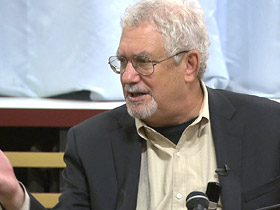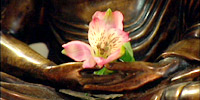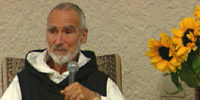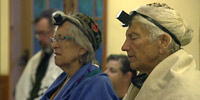In This Episode << SLIDE LEFT TO SEE ADDITIONAL SEGMENTS
Buddhist Teachings on Aging
Watch Buddhist teacher and author Lewis Richmond explain a Buddhist approach to old age and read an excerpt from his book “Aging as a Spiritual Practice: A Contemplative Guide to Growing Older and Wiser.”
EXCERPT: AGING AS A SPIRITUAL PRACTICE by Lewis Richmond
“Ahimsa and Aging”
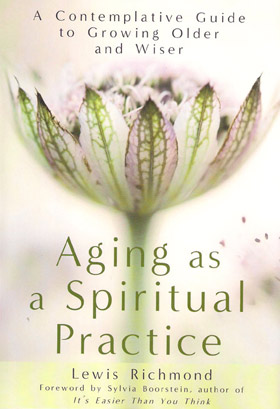
Every religion has its form of contemplative practice. Though Buddhism has many meditation practices, it is first and foremost an ethical teaching and a way of life. I have heard anecdotally that Thich Nhat Hanh, the Vietnamese Zen teacher, was once asked to summarize all of Buddhist teaching in one word. He said “Ahimsa,” which means “non-harm” or “nonviolence.” This is the first ethical precept of Buddhism. The term is thousands of years old and goes back at least to the Vedic Hinduism of ancient India. Mohandas Gandhi made ahimsa the centerpiece of his doctrine of nonviolence.
When the Dalai Lama says, “My religion is kindness,” he is saying much the same thing. More fundamental even than meditation for Buddhists is the sense that all life is sacred, and all life in one. That is the doctrine that underlies nonviolence. If all life is related, then we avoid harming others as much as we avoid harming ourselves. Thich Naht Hanh calls this connection “interbeing.” Shunryu Suzuki Roshi said, “When you feel the oneness of everything, you naturally don’t want to harm anything.”
This is the Golden Rule spoken as a Buddhist. To practice ahimsa is to follow Buddhist values, whether you call yourself a Buddhist or not. Meditation grows out of the ahimsa spirit and is a central expression of it. The application of Buddhist meditation to aging is another application of the ahimsa spirit. Our increasingly fragile and infirm bodies and minds are sacred, and worthy of the greatest kindness and care. To respect our aging at every stage is the greatest kindness we can offer to ourselves and those we love.
From “Aging as a Spiritual Practice: A Contemplative Guide to Growing Older and Wiser” by Lewis Richmond (Gotham Books, 2012)


